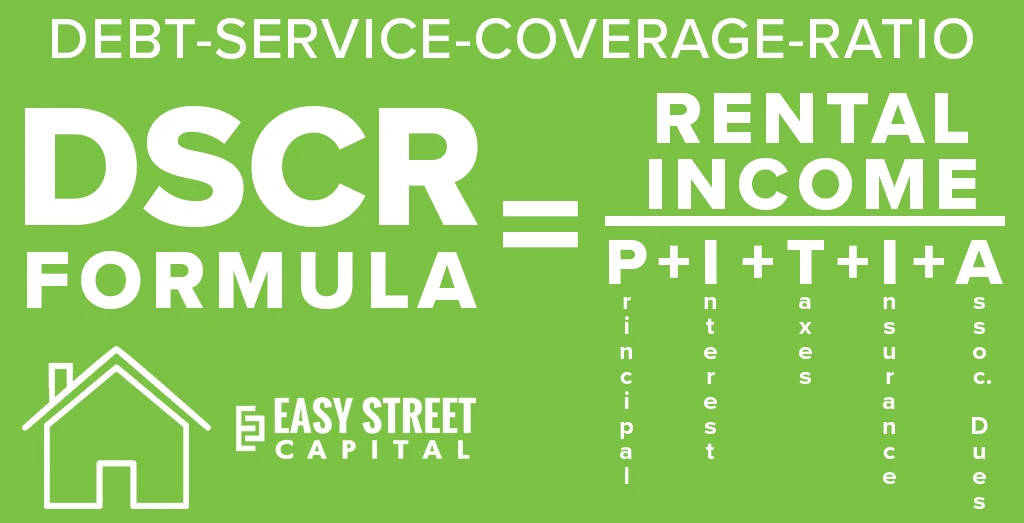
Debt Service Coverage Ratio (DSCR) loans are specialized financial products that are often utilized by investors in real estate and businesses. These loans are uniquely structured to prioritize the borrower’s income relative to their existing debt obligations. DSCR loans are attractive to those seeking to expand their portfolios or manage ongoing projects, as they provide financing based on the applicant’s cash flow rather than traditional income documentation.
Understanding the debt Service Coverage Ratio (DSCR)
The debt Service Coverage Ratio is a financial metric used by lenders to assess a borrower’s ability to repay debt. It is calculated by dividing the borrower’s net operating income by their total debt obligations. The result, represented as a ratio, provides insight into the borrower’s financial health. For instance, a DSCR of 1. 25 indicates that the borrower has 25% more income than their debt requirements, which is typically an acceptable margin for many lenders.
In the case of DSCR loans, lenders expect the ratio to be at least 1. 0, meaning that the income generated is sufficient to cover the debt payments. A higher DSCR ratio generally reflects better financial stability and may lead to more favorable loan terms. However, for borrowers with a lower DSCR, the likelihood of qualifying for a loan may be reduced unless the lender accepts certain mitigations or higher interest rates.
How DSCR Loans Work
Unlike traditional loans that require extensive What is Dscr Loan income documentation, DSCR loans focus on cash flow as the primary determinant of eligibility. Lenders assess a borrower’s DSCR ratio by analyzing financial statements and projected income. This flexibility benefits self-employed individuals and real estate investors who may not have consistent monthly income but do generate substantial cash flow.
DSCR loans are often employed in real estate investment, as they allow borrowers to leverage the rental income from their properties to qualify. The cash flow from these properties helps them demonstrate a sufficient DSCR, enabling them to finance additional investments. These loans also offer competitive interest rates, as they pose a lower risk for lenders due to the focus on cash flow rather than employment history or personal income.
Advantages of DSCR Loans
Flexibility in Qualification
DSCR loans provide an alternative for individuals with non-traditional income sources, making them accessible to entrepreneurs and real estate investors.
Less Documentation Required
Since these loans rely on cash flow rather than income documentation, they involve fewer paperwork requirements, streamlining the loan application process.
Potential for Higher Loan Amounts
Borrowers with high DSCR ratios may qualify for larger loan amounts, allowing them to finance significant investments or large-scale projects.
Appeal to Investors
DSCR loans are particularly advantageous for property investors, as they can use rental income to qualify and potentially expand their portfolios.
Risks Associated with DSCR Loans
While DSCR loans offer considerable benefits, they are not without risks. Borrowers with fluctuating income levels may find it challenging to maintain the DSCR ratio during economic downturns. Additionally, because these loans focus on cash flow, there can be pressure on borrowers to maintain steady rental or business income. A temporary decline in income can impact the DSCR ratio, potentially leading to difficulties in loan repayments.
Who Should consider a DSCR Loan?
DSCR loans are best suited for real estate investors, self-employed individuals, and business owners. This loan type is ideal for those who generate substantial cash flow from investments but may not have conventional employment income. Borrowers in these categories often find it challenging to qualify for traditional loans due to fluctuating income streams, making DSCR loans an appealing option.
Investors looking to expand their real estate holdings or finance large projects often rely on DSCR loans. These loans allow them to leverage their current cash flow to secure financing without extensive income documentation. For business owners who prioritize growth, DSCR loans offer a flexible solution that aligns with their cash flow-centric financial profiles.
Conclusion
In summary, DSCR loans are a valuable tool for borrowers who generate consistent cash flow from investments or businesses. By focusing on the debt service coverage ratio, lenders assess the borrower’s ability to manage debt through income rather than conventional employment documentation. With flexible qualification criteria and fewer documentation requirements, DSCR loans are an attractive option for real estate investors and self-employed individuals.
While DSCR loans offer notable benefits, they come with risks, especially in fluctuating income scenarios. For those with steady rental income or consistent cash flow, however, these loans provide a practical and efficient financing solution.
